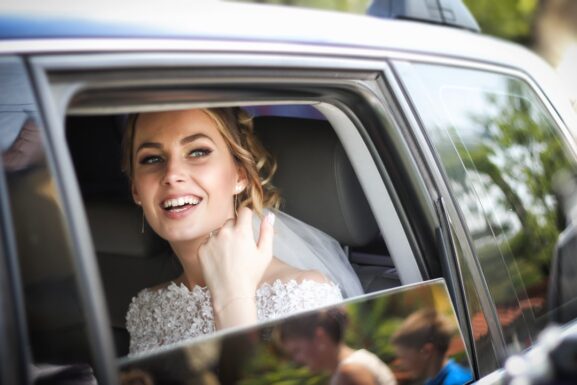12-Month Wedding Planning Checklist: What to Do and When
Setting the wedding date is a crucial initial step in wedding planning. Consider factors such as season, weather, and significant dates for you and your partner. Your budget will greatly influence the wedding date, size, and scope.
Discuss finances with your partner and any contributing family members to establish a realistic budget. Prioritize what matters most to you both within your financial constraints. When creating a wedding budget, account for all potential costs including venue, vendors, attire, accessories, décor, food and beverage, entertainment, and miscellaneous expenses.
Include a buffer for unexpected costs. Allocate funds based on your priorities. Use a spreadsheet or budgeting app to track expenses throughout the planning process, making adjustments as necessary.
Adhering to a realistic budget can help minimize stress during wedding planning. Consider all aspects of the wedding when budgeting, including venue rental, catering, attire, flowers, photography, videography, music, transportation, and wedding rings. Don’t forget additional costs such as invitations, wedding favors, and any pre-wedding events.
Research average costs in your area to get a realistic idea of expenses. Be prepared to make compromises and adjust your plans if necessary to stay within budget.
Hiring a Wedding Planner or Coordinator
Benefits of Hiring a Wedding Planner
If you’re feeling overwhelmed by the prospect of planning a wedding, or simply want to ensure that every detail is taken care of, hiring a wedding planner may be the right choice for you. They can take care of everything from start to finish, allowing you to relax and enjoy the experience.
When to Hire a Wedding Coordinator
On the other hand, if you’re confident in your ability to plan and organize your wedding but still want some assistance on the day of, hiring a wedding coordinator may be a better fit. A wedding coordinator can step in closer to the wedding date to finalize details, coordinate with vendors, and ensure that everything runs smoothly on the day of the event.
Peace of Mind on Your Special Day
They can also provide peace of mind for you and your partner, allowing you to relax and enjoy your special day without worrying about the logistics. Whether you choose to hire a wedding planner or coordinator, having a professional on your team can make a world of difference in ensuring that your wedding day is everything you’ve dreamed of.
Booking the Venue and Vendors
Booking the perfect venue for your wedding is a crucial step in the planning process. Start by considering the type of atmosphere you want for your wedding – whether it’s a rustic barn, a glamorous ballroom, or a scenic outdoor location. Once you have an idea of the type of venue you’re looking for, start researching potential options in your desired location.
Consider factors such as capacity, amenities, and any restrictions or requirements that may impact your decision. It’s also important to visit potential venues in person to get a feel for the space and ensure that it aligns with your vision for your big day. In addition to booking a venue, you’ll also need to secure vendors for various aspects of your wedding, such as catering, photography, entertainment, and floral design.
Start by researching potential vendors in your area and reading reviews from past clients to get an idea of their quality of service. Once you have a shortlist of potential vendors, reach out to them to inquire about availability, pricing, and any specific requests or requirements you may have. It’s important to book vendors well in advance, especially for popular dates and locations, so that you can secure the best options for your wedding day.
By taking the time to carefully research and book your venue and vendors, you can ensure that every aspect of your wedding reflects your unique style and vision.
Creating the Guest List and Sending Save the Dates
Creating a guest list for your wedding can be a daunting task, but it’s an important step in the planning process. Start by sitting down with your partner to make a list of everyone you want to invite, including family members, friends, and any other important individuals in your lives. Consider factors such as capacity limitations at your chosen venue and any budget constraints that may impact the size of your guest list.
It’s also important to consider any potential conflicts or dynamics that may arise from certain guest combinations. Once you have a preliminary guest list in place, it’s important to prioritize and make any necessary cuts if needed. Once you have finalized your guest list, it’s time to send out save the dates to give your guests plenty of notice about your upcoming nuptials.
Save the dates should include basic information such as the date of the wedding and location, as well as any additional details such as hotel accommodations or travel information if applicable. It’s also a good idea to include a link to your wedding website if you have one, where guests can find additional information about the event. Sending out save the dates well in advance will give your guests plenty of time to make arrangements and ensure that they can be there to celebrate with you on your special day.
Choosing the Wedding Attire and Accessories
Choosing the perfect wedding attire is an exciting part of the wedding planning process. Start by researching different styles and silhouettes that appeal to you and consider factors such as the season, venue, and overall theme of your wedding. Once you have an idea of what you’re looking for, start visiting bridal boutiques or formalwear shops to try on different options and get a feel for what suits you best.
It’s also important to consider accessories such as veils, jewelry, shoes, and any other embellishments that will complete your look on the big day. In addition to choosing attire for yourself, it’s also important to consider what your partner and wedding party will wear. Coordinate with your partner to ensure that your looks complement each other and align with the overall aesthetic of your wedding.
When it comes to dressing your wedding party, consider factors such as color scheme, style preferences, and any specific requests or requirements they may have. By taking the time to carefully choose attire and accessories for yourself and your wedding party, you can ensure that everyone looks and feels their best on your special day.
Finalizing the Menu and Décor
Creating the Perfect Menu
When it comes to finalizing the menu for your wedding, there are several factors to consider. Start by thinking about dietary restrictions, personal preferences, and any cultural or regional influences that may impact your menu choices. Whether you opt for a formal sit-down dinner or a more casual buffet-style meal, it’s essential to work closely with your caterer to create a menu that reflects your tastes and complements the overall theme of your wedding.
Setting the Scene
In addition to finalizing the menu, it’s also important to consider the décor elements that will enhance the atmosphere of your wedding. This includes factors such as floral arrangements, table settings, lighting, and any additional embellishments that will bring your vision to life. Consider working with a professional decorator or event designer who can help bring your ideas to fruition and ensure that every detail is taken care of.
Creating an Unforgettable Experience
By carefully considering both the menu and décor for your wedding, you can create an unforgettable experience for both you and your guests. With careful planning and attention to detail, you can ensure that your wedding reception is a truly memorable occasion that will be cherished by all who attend.
Confirming Details and Managing Last-Minute Tasks
As your wedding day approaches, it’s important to confirm all details with your vendors and finalize any last-minute tasks to ensure that everything runs smoothly on the big day. This includes confirming arrival times with vendors, reviewing contracts and payment schedules, and addressing any outstanding questions or concerns that may arise. It’s also important to create a detailed timeline for the day of the event, outlining key moments such as the ceremony, cocktail hour, dinner service, and any additional activities or entertainment.
In addition to confirming details with vendors, it’s also important to manage any last-minute tasks that may arise in the days leading up to your wedding. This includes factors such as packing for your honeymoon, creating seating charts, assembling welcome bags for out-of-town guests, and any additional logistical considerations that may need attention. By staying organized and proactive in managing last-minute tasks, you can ensure that everything is taken care of so that you can relax and enjoy every moment of your special day.
In conclusion, planning a wedding involves many moving parts and requires careful consideration of various factors such as budgeting, hiring professionals like planners or coordinators, booking venues and vendors, creating guest lists and sending save-the-dates, choosing attire and accessories for yourself and others involved in the ceremony, finalizing menus and decor elements while confirming details with vendors while managing last-minute tasks effectively. By taking each step seriously while keeping an open mind about changes along the way will help make this process smoother while ensuring an unforgettable experience for everyone involved in this special occasion.
If you’re feeling nervous about your upcoming wedding, you’re not alone. Many couples experience pre-wedding jitters, and it’s important to address these feelings. Check out this article on weddingagencies.com for tips on how to manage pre-wedding anxiety and stress. Remember, it’s normal to feel a little nervous, but there are strategies you can use to help calm your nerves and enjoy your special day.
FAQs
What is a 12-month wedding planning checklist?
A 12-month wedding planning checklist is a timeline that outlines the tasks and activities that need to be completed in the 12 months leading up to a wedding. It helps couples stay organized and on track with their wedding planning process.
What are some typical tasks included in a 12-month wedding planning checklist?
Some typical tasks included in a 12-month wedding planning checklist may include setting a budget, choosing a venue, selecting a wedding date, hiring vendors (such as caterers, photographers, and florists), sending out save-the-date cards, and starting to plan the honeymoon.
Why is it important to have a 12-month wedding planning checklist?
Having a 12-month wedding planning checklist is important because it helps couples stay organized, prioritize tasks, and ensure that they don’t forget any important details in the lead-up to their wedding day. It can also help reduce stress and make the planning process more manageable.
How can a 12-month wedding planning checklist help with budgeting?
A 12-month wedding planning checklist can help with budgeting by breaking down the various expenses associated with a wedding into manageable chunks over the course of a year. This allows couples to allocate funds to different aspects of the wedding and avoid overspending.
What are some tips for using a 12-month wedding planning checklist effectively?
Some tips for using a 12-month wedding planning checklist effectively include staying organized, being flexible with timelines, seeking help from friends and family, and regularly reviewing and updating the checklist as needed. It’s also important to prioritize tasks based on their importance and deadlines.



